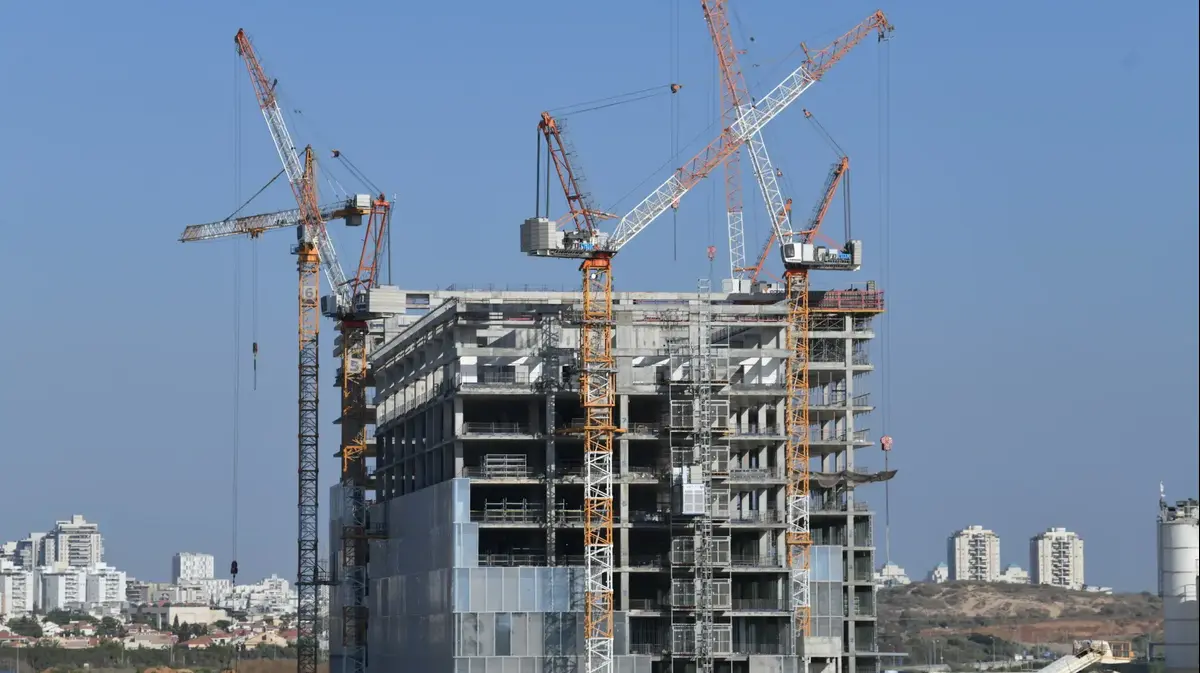Will entrepreneurs stop delaying construction starts?
The dramatic real estate tax returns/Reuven Castro
In addition to the dramatic taxes that have already been publicly announced and caused a great media uproar, such as the VAT increase by an additional percentage in January 2025, another dramatic tax has already begun to roll out under the radar that should also return to our lives next January, and affect them quite a bit.
"In order to encourage the settlement of vacant land for construction for residences and to encourage residential construction in Israel," the government wrote, "it was decided to establish a team to formulate legislative recommendations regarding property tax on unbuilt real estate." The team is being established these days and includes the chief economist at the Treasury and representatives of the Tax Authority, the Budget Division, the Ministry of Housing, and the Legal Adviser to the Government. The decision, within 100 days, recommendations will be submitted regarding the recommended tax rate, if any, and the "optimal" way of implementing it as early as this January.
What does this tax mean? First, it is a lot of money. In 1999, on the eve of the abolition of the tax that was 2.5% per year of the land's value or a minimum of 1.2% if it is registered as business inventory, the state collected property tax on land in the amount of NIS 1.12 billion. Let's recall that in 1999 the average price of land for an apartment was about 80 thousand NIS; as of today, prices are at least 5 times higher, and can indicate The potential of the tax to be derived from the value of the land.
The goal is not only to compensate for the government's expenses on the war, such as raising the VAT for example, but in this case - achieving more significant control over the rate of construction on the part of the government, as well as the attempt to lower housing prices, while many developers are waiting With the permit in hand and not rushing to build while waiting for better times.
Such a tax can be a burden on the entrepreneurs, which will speed up the construction or sale of land that is in the hands of entrepreneurs and contractors.
"Even this tax will eventually be passed on to the apartment buyers"
"Imposing a property tax now on the land is a serious mistake - it will further damage the motivation of us contractors and developers to acquire land in order to increase the number of construction starts," says Haim Feiglin, CEO of Tzemach Hamerman and vice president of the Association of Contractors Boni Ha'aretz. "See for example the failure rate in Rami's land tenders in the last year and the low number of actual transactions. If until now the contractors and developers were afraid to acquire land because of the high financing expenses, to this will be added another "stretcher" that will cause much greater defensiveness and caution when entering new projects."
Feiglin goes on to say that "Risk management is not a 'foul word'. It is a necessity of reality that is always required by anyone who runs a construction company. This is a high-risk industry in which the objects of life, it is better that they manage the risks wisely or they may reach the end of their professional path, when enterprises of life Payments go down the drain as we see more and more in the industry. What's more, these risks have many partners: apartment buyers, employees, suppliers, subcontractors, financiers and many service providers."
Haim Feiglin, CEO of Tzemach Hammerman and Vice President of the Association of Contractors Boni Ha'aretz/Kfir Sion
"There is already a purchase tax (6%) on land + development. There is a purchase tax on apartments that again include the land component. There is an improvement levy on private land which is a 50% tax at source on any improvement plan. There is an appreciation tax. There is the income tax, VAT + dividend tax at the end.
It is impossible to manage the entire housing market in Israel with this pile of taxes imposed on land.
The land is a critical resource in the construction industry, any additional tax on it will only make it more expensive, will be another barrier and at the end of the additional increase in price will be passed on to the apartment buying public with compound interest and additional overheads and entrepreneurial profit.
Please think about incentives, not the heaviness.
The heaviness will only constitute another barrier on top of all the many barriers that already exist in the construction industry today.
"It is impossible to manage the beginnings of construction by artificial coercion with force and through tax threats - this is destined for failure," concludes Feiglin.
More on the same topic:
real estate

